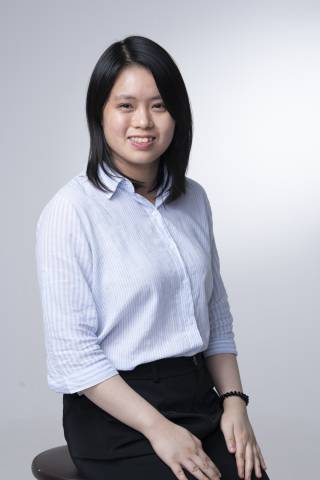Veronica completed both a BSc and a MPhil at the Hong Kong University of Science and Technology (HKUST) before joining STEaPP in 2021 to complete her PhD.
 How did you come to realise you wanted to study for a PhD?
How did you come to realise you wanted to study for a PhD?

Since I was young, I have wanted to become a professor and conduct research as well as teach, so I knew that I needed to study for a PhD to pursue this career path.
Why did you choose to undertake a PhD at UCL STEaPP?
Having studied physics and public policy at HKUST, I became interested in sustainable smart cities, the interface between science and policy, and the urgent need for policy responses to disruptive technologies. STEaPP’s research areas perfectly aligned with my research interests, so it was a no-brainer for me to study at STEaPP.
What is the focus of your PhD?
My PhD focuses on how expert knowledge and evidence is used in sustainable energy policies across major UK cities. Through my thesis, I want to understand how academics in the field can make a greater policy impact, how policy makers can make better use of expert knowledge, and how these processes are affected by issues of capacity, language, and policy framing.
What has been the highlight of your PhD so far?
I had the amazing opportunity to attend the International Conference on Public Policy and learn from the most brilliant minds and compassionate people in the field of public policy, and I loved being a postgraduate teaching assistant in the department to support Master’s students in their learning journey.
How would you describe the community at STEaPP?
Upon arriving at STEaPP, I immediately felt welcomed by this warm and diverse community. I am blessed to be surrounded by such amazing kind, humble people driven not only by their work ethic, but by their genuine dedication to making this world a better place.
What are your future plans/aspirations?
I hope to become someone who helps foster social wellbeing and environmental sustainability, and I aim to elevate the voices of marginalised communities so that their needs can be met. I am open to achieving this as an academic or otherwise.
Do you have a mentor/role model who has inspired you?
Within this space, I am grateful to several people who have inspired me. Firstly, without Prof. Kira Matus’s inspiring work and engaging lessons on sustainability policy, I would not have made the leap to public policy. Prof. Masaru Yarime, my Master’s supervisor, is a role model to me given how broad his knowledge is in the science, technology, and sustainability spaces, and his compassion and dedication to his work are truly admirable. Of course, Dr Carla Washbourne, my principal supervisor, has also been an incredible role model for me – I hope to emulate her passion for learning about new research topics, her open-mindedness, and the unwavering support and profound empathy she has for her colleagues. My secondary supervisor, Prof. Yasminah Beebeejaun, has done greatly needed work in the urban planning space, and her integrity motivates me to learn how to embed the values of social justice and equity into my research the way she has.
What advice would you give to future PhD students?
The PhD can be a lonely experience if you treat it as such. Please remember to reach out to your support network of family, friends, your supervisor, or your other colleagues. They can help you understand new perspectives on your work, and they can provide emotional support when needed. Working toward the thesis will likely be an arduous and bumpy process, so be kind to yourself and learn from the journey.
 Close
Close

